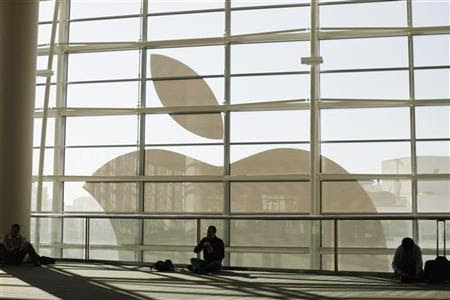
Apple Inc's new version of its iPhone and iPad software will not include a pre-loaded app for Google Inc's popular video website, YouTube, Apple said on Monday.
It was the latest sign of the growing rivalry between the technology companies the once were closely aligned but now are vying for supremacy in the fast-growing mobile computing market.
Earlier this year, Apple said it would dump Google's mapping software from its mobile devices.
"Apple and Google are the mobile operating systems for the future and this is where the battleground is going to lie," said Needham & Co analyst Kerry Rice.
"If it's going to be a two-horse race, you certainly don't want to give the other horse any kind of lead," he said.
Google, the world's No.1 Web search engine, is also the maker of the most popular smartphone software with its Android operating system. In May, Google closed the $12.5 billion acquisition of Motorola Mobility, setting the stage for Google to more tightly integrate its smartphone software and hardware and mount a more direct challenge to Apple's iPhone.
Apple said in a statement on Monday that its license to include the YouTube app in the iOS operating system "has ended." Apple noted that "customers can use YouTube in the Safari browser and Google is working on a new YouTube app to be on the app store."
An Apple spokeswoman declined to comment on whether the company's YouTube license included any financial terms, or on whether Apple planned to replace YouTube with another pre-installed online video app from a different company.
YouTube has been among a handful of apps that come pre-loaded onto the screens of Apple's mobile devices since the original iPhone was introduced in 2007.
But the app, which was actually built by Apple using YouTube's standards, did not appear to be as full-featured as YouTube's own website: the YouTube app does not appear to feature any advertising, and the catalog of available music videos lacks many of the titles found on the website.
Analysts said Google was unlikely to take much of a financial hit from the move, though it could complicate Google's efforts to expand online services to the growing ranks of mobile users.
"It's a risk to Google's overall mobile approach and strategy, in that their services are not going to be as easy to find as they used to be," said ThinkEquity analyst Ronald Josey. "They need to be everywhere that users are."
More worrisome, said Josey, is what the move could mean for Google's deal with Apple to be the default search engine on the iPhone.
"The writing's on the wall that when search is up for renewal, there's a significant chance that Google may not be the default," said Josey.
Analysts believe Google generates a significant portion of mobile advertising revenue from iPhone users.
Former Google CEO Eric Schmidt once sat on Apple's board of directors, but the relationship between the two companies has frayed. Apple's co-founder, the late Steve Jobs, was quoted as saying he was willing to go "thermonuclear" on the search leader, after it decided to position Android against the iPhone.
News of YouTube's disappearance from Apple's mobile software came as Apple released a new test version on Monday of the iOS 6 software, which for the first time did not include the YouTube app. The final version of iOS 6 is due for release sometime in the Fall.
YouTube is one of the most popular destinations on the Internet, with more than 800 million unique monthly visitors who stream 4 billion videos a day.
Google said in a statement that it was working with Apple to ensure that it has "the best possible YouTube experience for iOS users."
Shares of Google finished Monday's regular session up 1 percent at $622.19. Apple shares were up 1.1 percent at $622.55.






